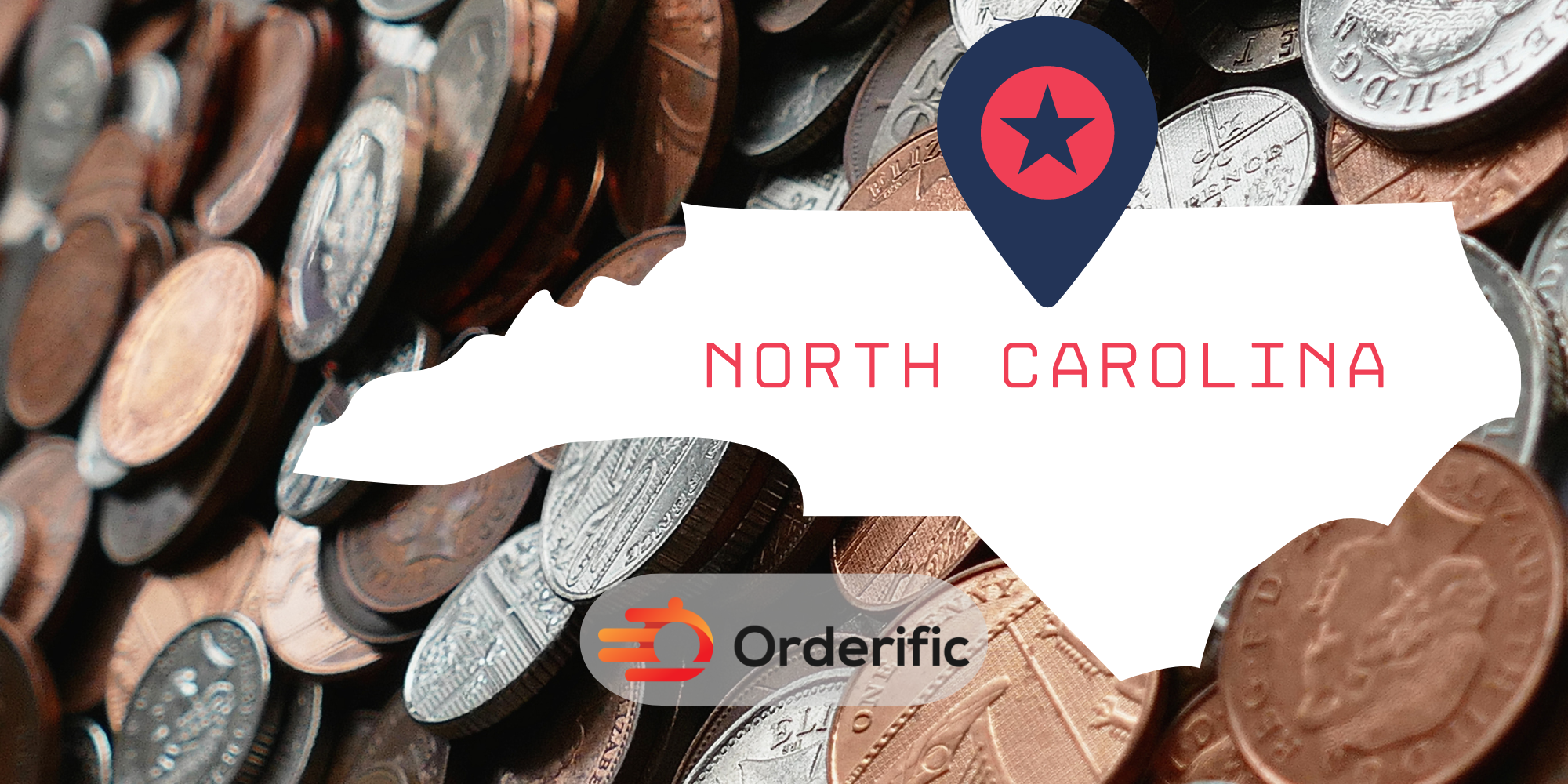Welcome to our guide on the facts and figures of North Carolina’s minimum wage. Employers should be aware of their obligations under the Fair Labor Standards Act (FLSA), but employees must know their rights too. In this article, we discuss how much workers earn in NC, where federal and state laws differ, and how minimum wage affects local economies. Read on to learn the truth about minimum wage in the Tar Heel State!
Under federal law, employers must pay all workers at least $7.25 per hour, as established by the Fair Labor Standards Act (FLSA). The state of North Carolina has its minimum wage laws too; however, they do not exceed the federal minimum wage.
As of 2021, the minimum wage in North Carolina is $7.25 per hour for most employees; however, workers who receive tips have a lower minimum wage and those under the age of 20 are entitled to an even lower rate. In addition, tipped employees must earn at least 30 percent of the minimum wage before gratuities.

Understanding the NC Minimum Wage Law
The law in NC states that employers must pay all employees at least the state or federal minimum wage (whichever is greater). This means that if the federal rate is higher than the state rate, then employers must pay their workers the federal minimum wage.
What is The Current Minimum Wage in North Carolina?
The North Carolina Department of Labor sets the minimum wage for most employees in the state at $7.25 per hour. This is the same as the federal minimum wage, which has been in effect since 2009.
Who is Eligible for the Minimum Wage in North Carolina?
Employers must also pay tipped employees a lower hourly rate based on their tips. The current tip credit for North Carolina employers is $4.25 per hour. This means that employers must pay their tipped employees at least $3.00 an hour plus any tips they receive from customers, to meet the minimum wage amount required by law.
How Often is the Minimum Wage in North Carolina Updated?
The minimum wage in North Carolina has been the same since 2010. This means that the last update was done in 2010 and it was $6.55 in 2009. So, it is the same with the federal minimum wage over 13 years.
Impact of NC Minimum Wage on Workers and Businesses
The minimum wage in North Carolina has an impact on both workers and businesses. For employees, the minimum wage provides essential protection against exploitation. In addition, when wages are higher, people tend to have more spending power which is beneficial to local economies.
How Does the NC Minimum Wage Compare to Other States?
North Carolina’s minimum wage is lower than many other states, with the federal rate of $7.25 per hour being the same as in Alabama, Louisiana, Mississippi, and South Carolina – four of North Carolina’s neighboring states.
In comparison, many nearby states have higher wages. Virginia has a minimum wage of $12.00 per hour, and Maryland has a minimum wage of $13.25 per hour. Even further away, Washington State has the highest minimum wage in the country at $15.74 an hour – nearly double that of North Carolina’s minimum wage.
What are The Benefits of Increasing The Minimum Wage in North Carolina?
A higher minimum wage can have positive benefits for workers and employers alike. Workers will be able to earn more money, potentially reducing poverty levels in the state. Employers may also see increases in productivity as employees are paid more fairly for their work – which could lead to increased profits in the long run.
What are The Potential Drawbacks of Increasing the Minimum Wage in North Carolina?
By setting a higher minimum wage, employers must pay their employees more money, which can lead to higher prices for goods and services. This can hurt businesses, as customers may be less likely to purchase their product or service if the prices are too high.
Employers must also consider the effect of rising wages on labor costs. If the minimum wage is increased without an increase in productivity, employers will have higher labor expenses and may need to increase prices or reduce staff to remain profitable.

Impact of NC Minimum Wage on Businesses
Raising the minimum wage in North Carolina can have a positive impact on local businesses. Studies show that when people earn more money, they are likely to spend it in their communities – which helps stimulate the local economy.
How Does The NC Minimum Wage Affect Small Businesses?
There is no definitive answer to the question of whether or not raising the minimum wage leads to job growth in North Carolina. However, some studies have shown that increasing the minimum wage can lead to increased employment and higher wages for workers.
A study published by the National Bureau of Economic Research found that raising the minimum wage in a state increases overall employment – including low-wage workers – and can reduce poverty. Other research has found that raising the minimum wage could lead to job losses in certain industries, such as restaurants, but this is not necessarily negative if it leads to higher wages for other employees.
What are Some Strategies for Businesses to Cope With a Higher Minimum Wage?
Raising the minimum wage has the potential to increase economic growth in North Carolina. Higher wages mean that workers have more money to spend, which could lead to increased consumer spending and a boost in sales for businesses.
This increased economic activity could also create new jobs as demand increases. In addition, higher wages could reduce poverty levels in the state – leading to a healthier economic landscape for everyone.
What are The Potential Consequences of a Higher Minimum Wage for Businesses?
Raising the minimum wage can have a positive impact on consumer spending in NC. As workers earn more money, they can make larger purchases and purchase more items – which could lead to increases in sales for local businesses.
Higher wages may also improve employee morale and productivity, leading to increased profits for employers. In addition, raising the minimum wage could reduce poverty levels in the state, which could lead to a healthier economic environment for everyone.

Conclusion
Minimum wage is an important topic that affects many workers in North Carolina – from tipped employees to underage workers. Employers must follow federal and state laws when setting wages, and employees should be aware of their rights under the Fair Labor Standards Act (FLSA).
In this guide, we discussed how much workers earn in NC, where federal and state laws differ, and how minimum wage affects local economies. We also covered the history of the minimum wage in North Carolina, as well as its impact on workers and employers – including job growth and consumer spending. Finally, we explored the potential economic impacts of raising the minimum wage in North Carolina – from increased economic activity to reduced poverty levels. We hope this guide has provided you with a better understanding of the facts and figures surrounding minimum wage in North Carolina.
Regardless of your opinion on this issue, it is important to stay informed about the current minimum wage law – both in North Carolina and across the United States. Knowing your rights as an employee can help ensure that you are being paid fairly for your work.
Let’s find out more with Orderific here! Also don’t forget to take advantage of Orderific’s benefits for your business. Click here to get involved!
FAQs
How does the NC minimum wage compare to other states?
The minimum wage in Virginia is $12.00 per hour and Washington State has the highest rate at $15.74 an hour – nearly double that of North Carolina’s minimum wage.
What are the benefits of increasing the minimum wage in North Carolina?
Increasing the minimum wage can lead to increased economic activity, reduced poverty levels in the state, and improved employee morale and productivity.
What are the potential drawbacks of increasing the minimum wage in North Carolina?
Raising the minimum wage can lead to higher labor costs and higher prices for goods and services. It can also potentially lead to job losses in certain industries.
How does the NC minimum wage affect small businesses?
Studies have shown that raising the minimum wage can lead to increased employment and higher wages for workers, as well as a boost in sales for businesses.
What are some strategies for businesses to cope with a higher minimum wage?
Businesses should consider ways to increase productivity and reduce labor costs, such as investing in technology or training programs.
What are the potential consequences of a higher minimum wage for businesses?
Raising the minimum wage could lead to increased sales for businesses as consumers have more money to spend.













